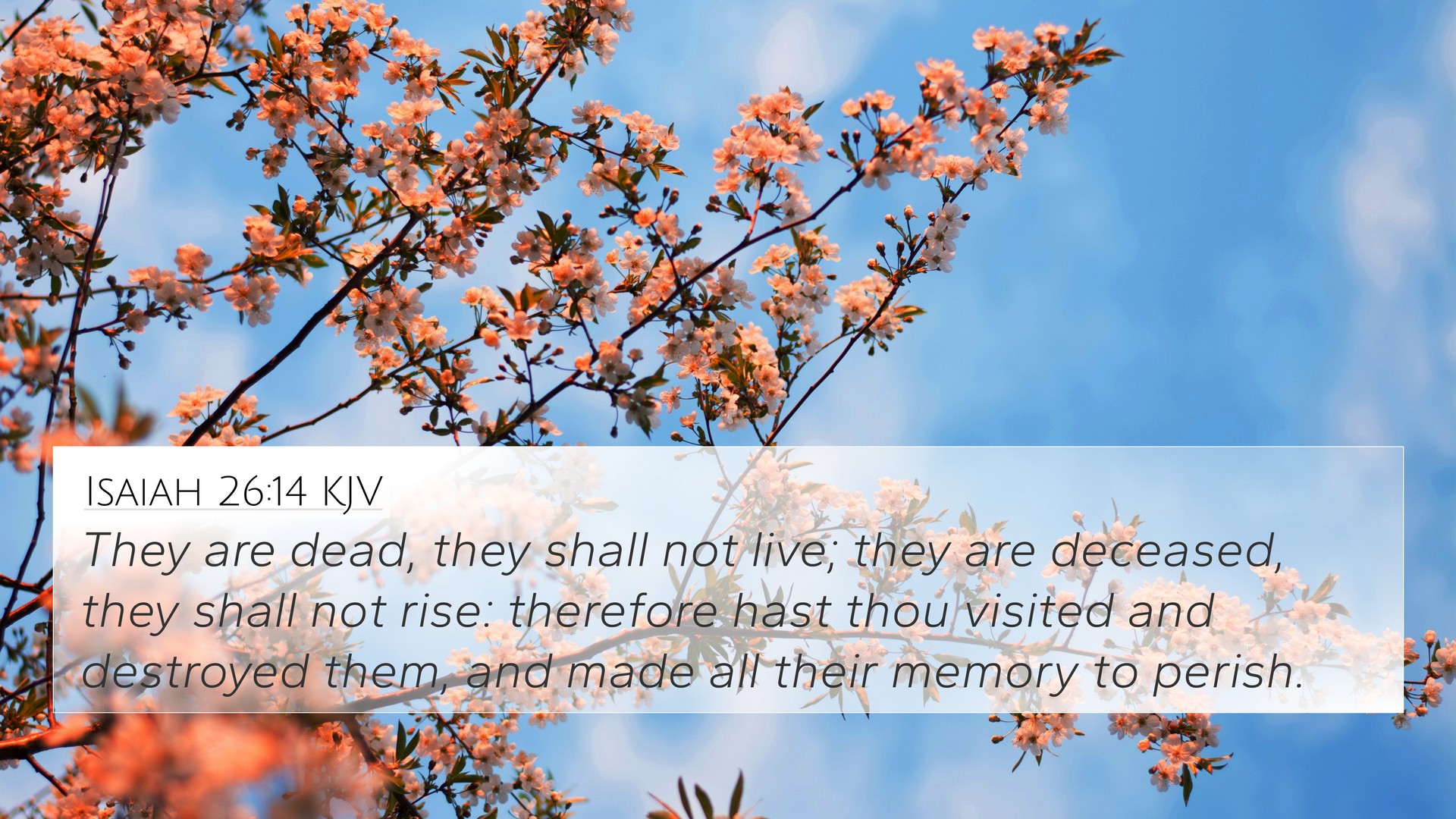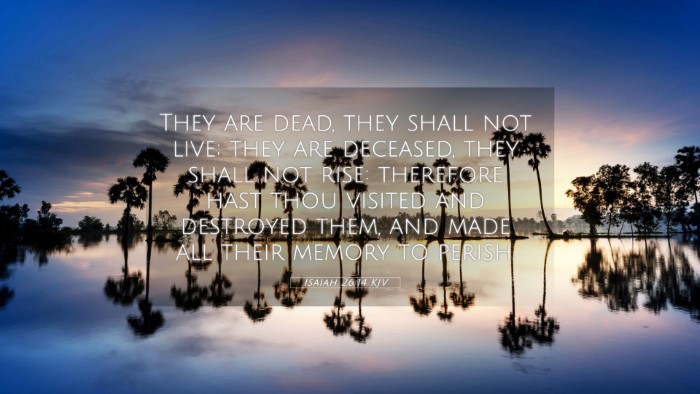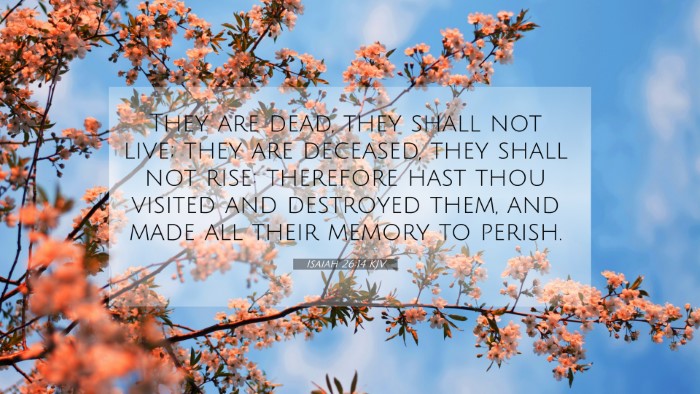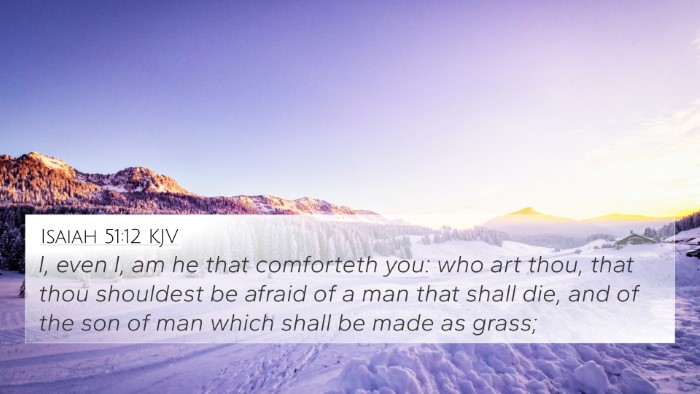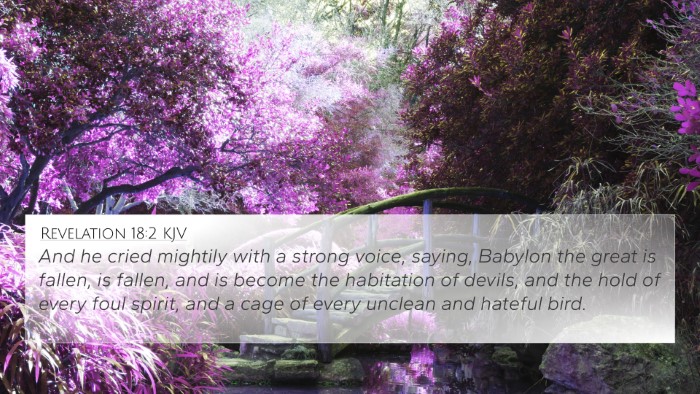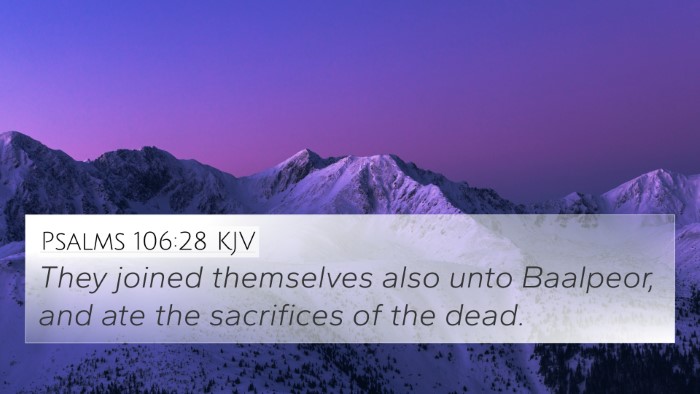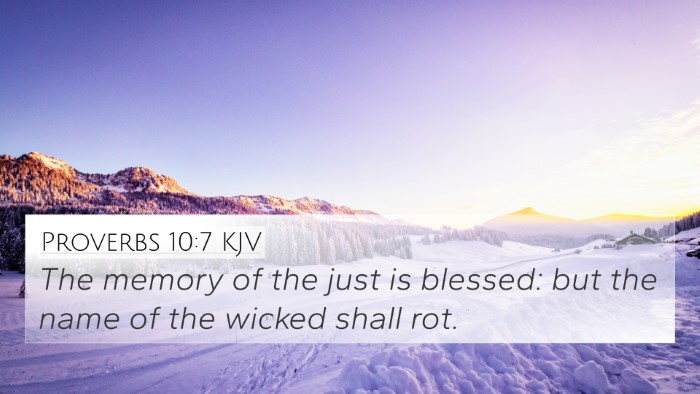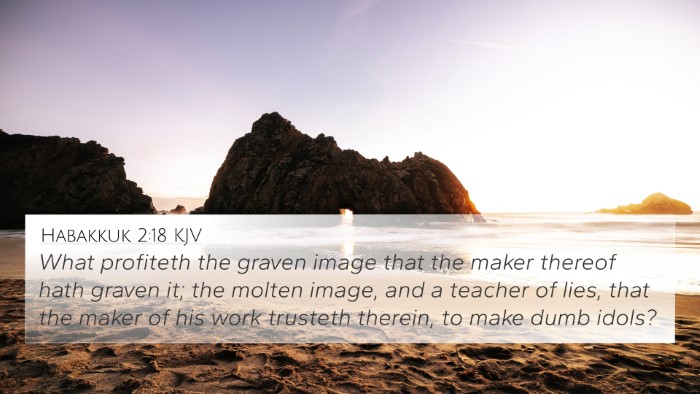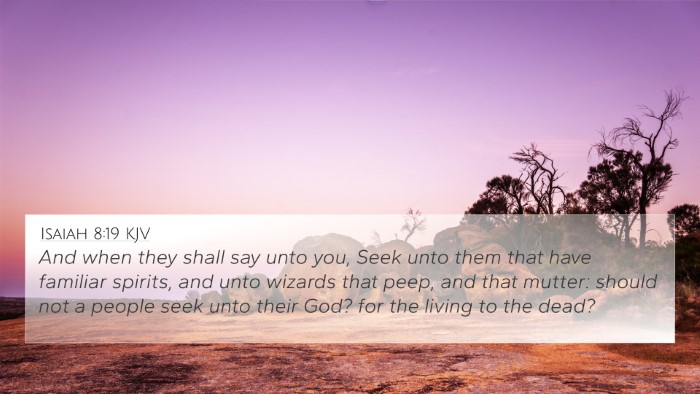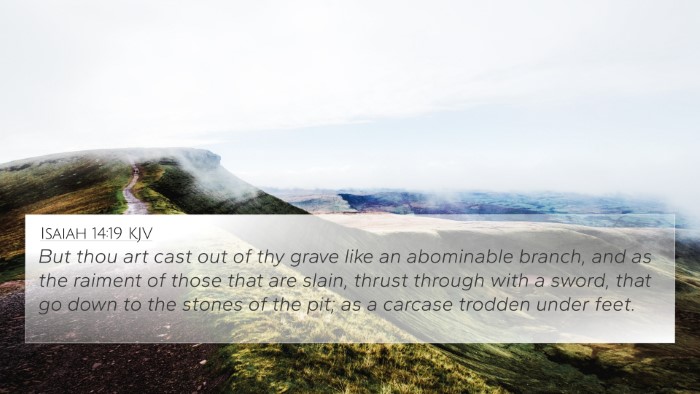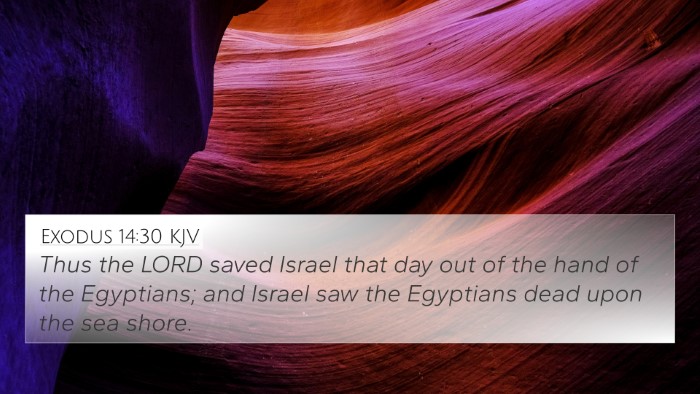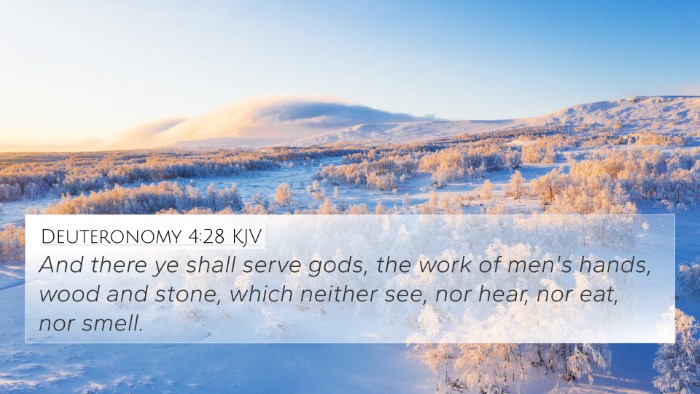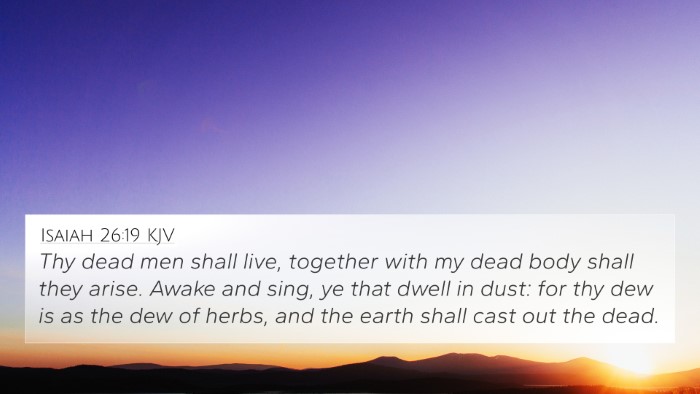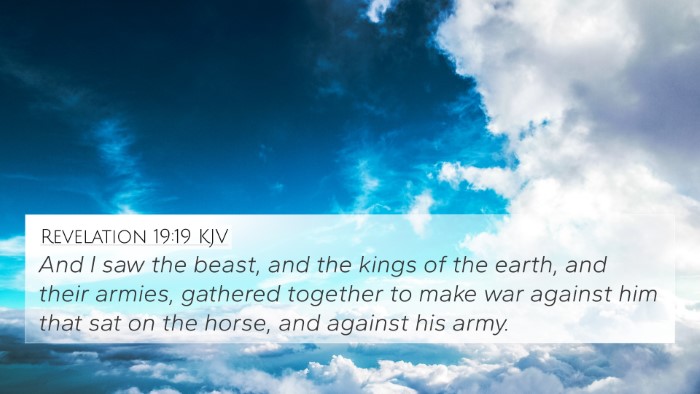Understanding Isaiah 26:14
Isaiah 26:14 states: "They are dead, they shall not live; they are deceased, they shall not rise: therefore hast thou visited and destroyed them, and made all their memory to perish." This verse encapsulates a profound theme of mortality, divine judgment, and the fate of the ungodly, reflecting deeply on the consequences of turning away from God.
Verse Meaning and Context
This verse appears in a passage that contrasts the fate of the righteous and the wicked. Here, Isaiah conveys a clear message about the ultimate fate of those who oppose God’s will. The language used indicates finality and irrevocable judgment against those deemed as adversaries.
Insights from Public Domain Commentaries
-
Matthew Henry:
Henry emphasizes that this passage serves as a sober reminder of God's authority over life and death. He interprets the verse as a declaration of the Lord's dominion, noting that those who have perished without repentance are permanently removed from God’s remembrance.
-
Albert Barnes:
Barnes points out that the mention of the dead not living echoes the theological belief in the afterlife. He suggests that this verse is indicative of the irrevocable state of the wicked after death, and that it serves to underscore a divine truth regarding judgment day.
-
Adam Clarke:
Clarke interprets the concept of "memory" as relating to legacy and remembrance. He explicates that those who oppose God will face obliteration from the annals of history, symbolizing not merely physical death but also a spiritual and societal death.
Thematic Bible Verse Connections
Understanding Isaiah 26:14 is enriched by its connections to other biblical texts. The current verse ignites a thematic dialogue regarding judgment, mortality, and divine retribution throughout the Scriptures. Below are some significant Bible cross-references:
- Psalm 37:20: "But the wicked shall perish, and the enemies of the Lord shall be as the fat of lambs: they shall consume; into smoke shall they consume away." - This psalm aligns with the fate of the ungodly as noted in Isaiah, affirming their ultimate demise.
- Hebrews 9:27: "And as it is appointed unto men once to die, but after this the judgment." - This New Testament verse reinforces the finality of judgment, similar to the assertions of death and destruction in Isaiah.
- Revelation 20:14: "And death and hell were cast into the lake of fire. This is the second death." - This passage provides a potent image of eternal judgment, paralleling the finality expressed in Isaiah 26:14.
- Ezekiel 18:32: "For I have no pleasure in the death of him that dieth, saith the Lord God: wherefore turn yourselves, and live ye." - A call to repentance contrasting the doom of the ungodly.
- Proverbs 10:7: "The memory of the just is blessed: but the name of the wicked shall rot." - This verse contrasts the remembrance of the righteous against the fate of those who turn from righteousness.
- Isaiah 66:24: "And they shall go forth, and look upon the carcasses of the men that have transgressed against me: for their worm shall not die, neither shall their fire be quenched; and they shall be an abhorring unto all flesh." - Connecting themes of destruction for the wicked and permanence of their disgrace.
- John 5:28-29: "Marvel not at this: for the hour is coming, in the which all that are in the graves shall hear his voice, and shall come forth; they that have done good, unto the resurrection of life; and they that have done evil, unto the resurrection of damnation." - Jesus speaks of resurrection that holds implications similar to those described in Isaiah.
Connections Between Bible Verses
By engaging in cross-referencing biblical texts, we can identify the interconnected themes regarding life, death, and judgment.
- **Cross-references offer clarity**: They position Isaiah 26:14 within a wider biblical narrative, allowing for a deeper understanding of God's justice.
- **Cross-referencing Biblical texts enhances comprehension**: The use of a Bible concordance aids readers in navigating similar passages, such as those expressing themes of divine retribution.
- **Comprehensive Bible cross-reference materials**: Tools for Bible cross-referencing guide readers in systematic studies, helping illuminate complex theological ideas found in Isaiah and related texts.
Tools for Bible Cross-Referencing
Utilizing a Bible cross-reference guide or a Bible concordance is vital for studying connections in Scripture. Here are some practical tips:
- **Identify key terms**: Focus on theological terms such as "death", "judgment", and "wicked" to find relational verses.
- **Look for thematic continuities**: Examine how various authors address similar concepts about divine justice across both testaments.
- **Utilize Bible reference resources**: Consider more elaborate study Bibles that include footnotes and references to connect passages.
Conclusion
Isaiah 26:14 conveys a powerful message about the fate of the unrighteous and serves as a dire warning against neglecting divine authority. Through cross-referencing with related scriptures, we can gain a fuller understanding of the biblical narrative surrounding life after death and the nature of God’s judgment.
By examining these connections, believers can engage in a more profound and comprehensive Bible study, finding deeper meaning in the scriptures that speak to similar themes of mortality and divine justice.
